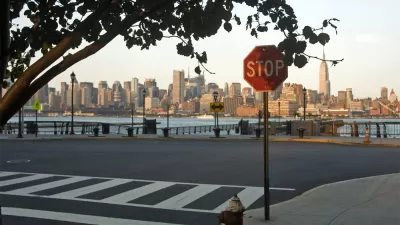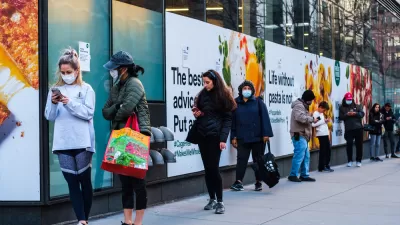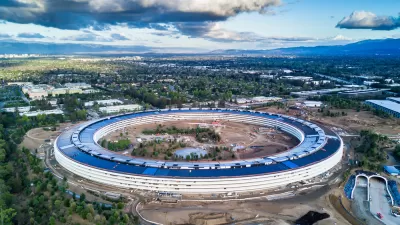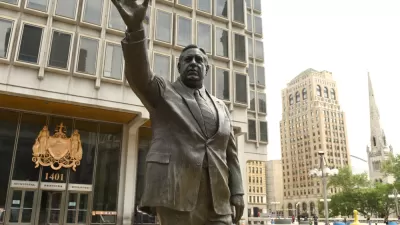Response to coronavirus challenges in urban settings will likely be a continuity of work started decades ago.

Widespread fears about the impact of the coronavirus pandemic on privacy and densification paint a picture of a frightening urban future. Contrarily, Ian Klaus shows a hopeful "radical vision of hope: As lifestyle and consumption habits have transformed overnight and governments have committed trillions of dollars of investment in national economies, perhaps the challenges of overcoming the coronavirus pandemic might ultimately foster a more equitable, sustainable urban future."
Klaus outlines five ongoing developments that could shape the cities post-pandemic:
- Affordable housing and accessible design will be celebrated as architects and urban designers continue to present innovative solutions to social issues around housing.
- The development of new building materials (think ultra-strong timber towers and biophilic design) promotes sustainability.
- Local leaders realizing the power to respond to challenges in transportation and housing.
- Networks of cities participating in collective action will continue to organize, elevating urban concerns to the global stage.
- Increased attention is paid to cities in the Global South. The resiliency of informal housing will inform future adaptation.
Studying the successes of recent history offers opportunities to identify the work that must continue and that will define wins in the future. Looking toward the challenges faced by urbanists in the post-coronavirus future Klaus adds, "We all already know much of what we will find and have to work with on the other side."
FULL STORY: The Post-Pandemic Urban Future Is Already Here

Maui's Vacation Rental Debate Turns Ugly
Verbal attacks, misinformation campaigns and fistfights plague a high-stakes debate to convert thousands of vacation rentals into long-term housing.

Planetizen Federal Action Tracker
A weekly monitor of how Trump’s orders and actions are impacting planners and planning in America.

In Urban Planning, AI Prompting Could be the New Design Thinking
Creativity has long been key to great urban design. What if we see AI as our new creative partner?

Pedestrian Deaths Drop, Remain Twice as High as in 2009
Fatalities declined by 4 percent in 2024, but the U.S. is still nowhere close to ‘Vision Zero.’

King County Supportive Housing Program Offers Hope for Unhoused Residents
The county is taking a ‘Housing First’ approach that prioritizes getting people into housing, then offering wraparound supportive services.

Researchers Use AI to Get Clearer Picture of US Housing
Analysts are using artificial intelligence to supercharge their research by allowing them to comb through data faster. Though these AI tools can be error prone, they save time and housing researchers are optimistic about the future.
Urban Design for Planners 1: Software Tools
This six-course series explores essential urban design concepts using open source software and equips planners with the tools they need to participate fully in the urban design process.
Planning for Universal Design
Learn the tools for implementing Universal Design in planning regulations.
planning NEXT
Appalachian Highlands Housing Partners
Mpact (founded as Rail~Volution)
City of Camden Redevelopment Agency
City of Astoria
City of Portland
City of Laramie





























